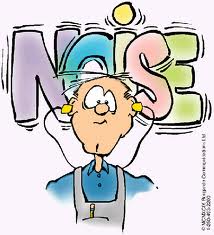Difference between revisions of "Kinds of Hearing Impairment"
(→Deafness From Diseases) |
(→Deafness From Diseases) |
||
| Line 33: | Line 33: | ||
HIV may also cause damage to ears. | HIV may also cause damage to ears. | ||
Babies born to alcoholic mothers may also have to face hearing loss. | Babies born to alcoholic mothers may also have to face hearing loss. | ||
| + | |||
[[File:Deaf2.jpg]] | [[File:Deaf2.jpg]] | ||
Revision as of 01:09, 25 July 2010
Contents
With growing age there is loss in the ability to hear. It is a gradual process. There can be decrease in the clarity of speech or slight hearing loss. Age-related deafness can be the result of exposure to noise. The tiny, bony structures of the middle ear may become rigid so less sound vibrations may pass from the outer ear to the inner ear.
Symptoms There is a decreased ability to hear speech clearly and hearing loss of sounds in certain ranges or frequencies. Similar speech sounds may become difficult to distinguish. Background noise can make this even more difficult. Friends and family may notice the hearing loss before the person with the hearing loss does.
Treatment Earing aids are a common treatment for age-related hearing loss. Sound is amplified with the help of hearing aids. Many types of hearing aids are available and many can be personalized to meet the specific needs of the individual. Presence of tinnitus may also be reduced with the help of hearing aids.Tinnitus is a condition in which a person hears sounds like ringing, buzzing, or crackling that may not be present in the person’s environment.
Noise-Induced Deafness
One can lose hearing ability due to exposure to noise.This is one of the most common causes of hearing loss. Because of loud noises Tinnitus may also occur. If such kind of deafness occurs suddenly it is called auditory trauma. Examples of an auditory trauma are noises from an explosion, firecrackers, or gunshot. Sometimes sudden change in air pressure along with loud noises can also cause such deafness. Auditory trauma can rupture the eardrum. Loud noises in an industrial setting cause a kind of deafness known as Industrial Deafness. This type of hearing loss is most common in people who work in industrial settings with excessive noise. They must use protective gear such as earplugs etc to prevent such a kind of mishap.
Workers in other fields are at risk of noise-induced hearing loss. Occupational hearing loss is common among firefighters and musicians. Some manufacturing settings have excessive noise that can put the workers at risk for hearing loss.
Some people may not realize the danger of loud noise. Loud music as is common at rock concerts has been known to cause hearing loss. If one is exposed to loud sound (including music) at high levels or for extended durations (85 dB A or greater), then hearing impairment can occur. Sound levels increase with proximity; as the source is brought closer to the ear, the sound level increases.
Treatment may include use of hearing aids, assistive listening devices, and cochlear implants.
Deafness From Diseases
Deafness can also be the consequence of an infection or disease that might affect the structural integrity of the ear. Deafness from disease can happen any time during life, even before birth. Deafness can result from being exposed to rubella, influenza, or mumps before birth. Measles and Meningitis may result in auditory nerve damage. Ear infections are the most common causes of hearing loss in children. The hearing loss can become more severe and permanent if the ear infection is left untreated. Swimmer’s ear, also called an external ear infection, can cause temporary hearing loss due to swelling of the ear canal. HIV may also cause damage to ears. Babies born to alcoholic mothers may also have to face hearing loss.
Otosclerosis is a disease of the ear that causes bony projections to develop. These growths can interfere with hearing. Otosclerosis can affect the middle ear, inner ear, or both.
Rheumatoid arthritis, lupus, and other autoimmune disorders have been associated with a risk of hearing loss. With these autoimmune diseases, hearing loss occurs if the immune system attacks the cells of the cochlea. Multiple Sclerosis can cause deafness.
Diabetes can cause hearing loss or deafness if the nerves or the blood supply of the ears is compromised. Nerve damage and damage to the circulatory system are symptoms of diabetes.
Premature birth may also result in sensorineural hearing loss approximately 5% of the time.



